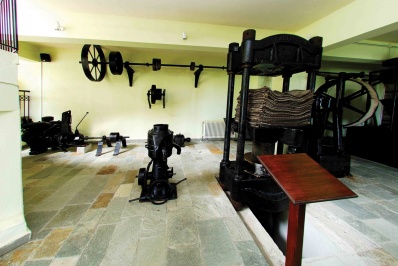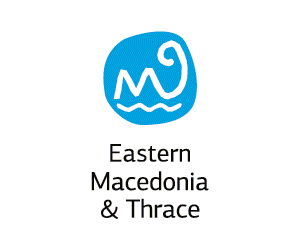Traveler's Guide
East Macedonia & Thrace
Region of East Macedonia & Thrace
The Region of Eastern Macedonia and Thrace occupies the northeastern part of Greece. It borders with Turkey easterly, Bulgaria northern and with the Regional Unit of Serres westerly. Southwest is washed by the Aegean Sea and southeast by the Thracian Sea. It includes the Regional Unities: Drama, Kavala, Xanthi, Rodopi and Evros.
It has a total area of 14.157 thousand hectares and covers the 10.7% of the total area of the country.
Also includes two major islands of Thracian Sea, Thassos and Samothrace.
Crossroad of major sea and land routes by which, for thousands of years, are moving people and goods, ideas and habits to and from the four cardinal points: from the Black Sea and Asia to Western Europe and from North Europe and the Balkans to the Mediterranean and North Africa.
The traces of its history, that start from the Paleolithic season and arrive to our days, are everywhere: caves, rock paintings, forts, temples, theaters, citadels, mines, graves, tumuli, marble quarries, Christian monuments, monasteries and holy places , aqueducts, Islamic monuments, traditional villages, Megara, mansions, tobacco warehouses.
The Region of Eastern Macedonia and Thrace, during the ancient times, was covered by forests at the rate of about 80%, but today this percentage has limited to 55% per area. In its extent there are trackless forests, virgin nature, high mountains, rich flora and fauna, large rivers, lakes and lagoons and an endless coastline with clear blue waters and friendly beaches.
The region is a place of music, dance, feast and ritual. Dionysus and Orpheus never left from this earth. The reversals of nature (winter, spring, etc.) give an opportunity for reversals of another class: masquerading and walking over fires, and outspoken sprees, kidnappings and robberies, all in the context of ritual.
The Collection of the Papanikolaou Foundation
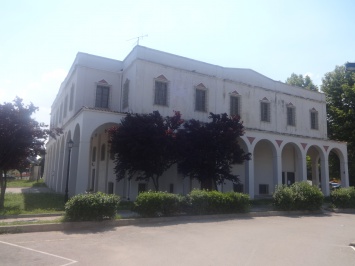 Away from the eyes of visitors, the interest of scientists and the affection of the people of Komotini is left the Collection of the Museum of the Papanikolaou Foundation. This ...
Away from the eyes of visitors, the interest of scientists and the affection of the people of Komotini is left the Collection of the Museum of the Papanikolaou Foundation. This ...
Ruins of the Byzantine city of Gratianos
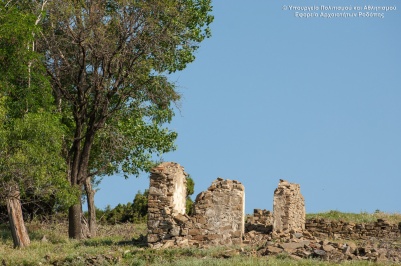 In Gratini, the ruins of the Byzantine city, that after the destruction of Mosynoupoli the 14th century, were the most important center of the region. It’s situated near the village ...
In Gratini, the ruins of the Byzantine city, that after the destruction of Mosynoupoli the 14th century, were the most important center of the region. It’s situated near the village ...
Old Temenos, Eski Mosque
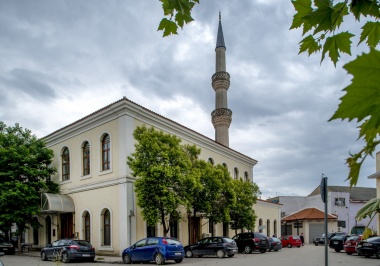 The large mosque was founded, according to the testimony of the Ottoman traveler Evliyia Tselebi of 17th century, in 1608/9, while an inscription testifies repairs during the year 1677-1678. The ...
The large mosque was founded, according to the testimony of the Ottoman traveler Evliyia Tselebi of 17th century, in 1608/9, while an inscription testifies repairs during the year 1677-1678. The ...
Tsinar Mosque
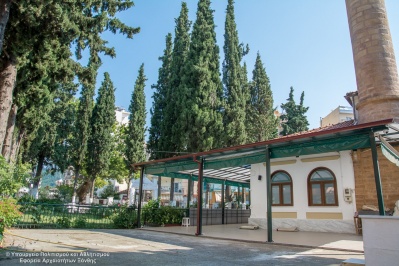 It was named after the tree which is located at the entrance. The founder of the mosque was a man named Çıplak Hüseyin Ağa. He built the mosque and spent ...
It was named after the tree which is located at the entrance. The founder of the mosque was a man named Çıplak Hüseyin Ağa. He built the mosque and spent ...
Kasaba Mosque
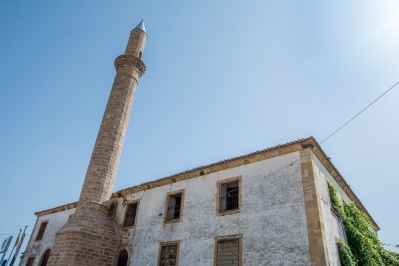 The Kasaba Mosque is located near the central square of Genisea behind the Mustafa Pasha mosque (Admiral in time of Murad IV) and is dated to 15-16 century. In this ...
The Kasaba Mosque is located near the central square of Genisea behind the Mustafa Pasha mosque (Admiral in time of Murad IV) and is dated to 15-16 century. In this ...
Nea Iraklitsa Beach
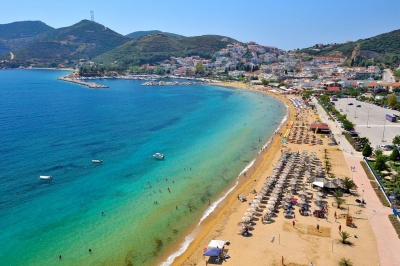 New
Iraklitsa is a seaside settlement at Kavala prefecture. At New Iraklitsa there
is a quaint little port-marina, taverns and beach. The beach of Nea Irakleitsa
called “Alana” has beach bars and volleyball ...
New
Iraklitsa is a seaside settlement at Kavala prefecture. At New Iraklitsa there
is a quaint little port-marina, taverns and beach. The beach of Nea Irakleitsa
called “Alana” has beach bars and volleyball ...
Alykes
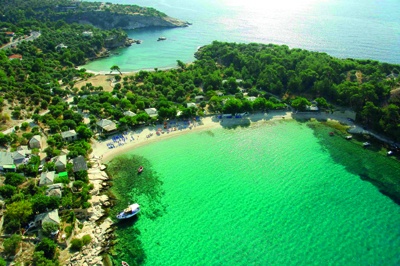 Those are exquisite small villages with beaches and creeks, where one can enjoy swimming. The beaches of Alyki, Psili Ammos, Paradissos, Thymonia and Astris are renowned.Source: http://thassos.gr http://tourism.kavala.gr
Those are exquisite small villages with beaches and creeks, where one can enjoy swimming. The beaches of Alyki, Psili Ammos, Paradissos, Thymonia and Astris are renowned.Source: http://thassos.gr http://tourism.kavala.gr
Flora
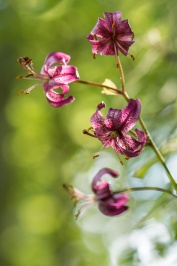 Στο νομό Δράμας κυρίαρχο στοιχείο στη φυσιογνωμία της περιοχής είναι το φυσικό περιβάλλον με τους μοναδικούς βιότοπους και τα εντυπωσιακά δασικά τοπία, τα οποία και αποτελούν σημεία αναφοράς για κάθε ...
Στο νομό Δράμας κυρίαρχο στοιχείο στη φυσιογνωμία της περιοχής είναι το φυσικό περιβάλλον με τους μοναδικούς βιότοπους και τα εντυπωσιακά δασικά τοπία, τα οποία και αποτελούν σημεία αναφοράς για κάθε ...
Evros
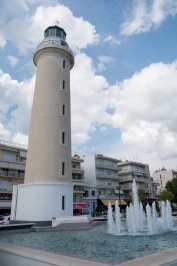 In the northeastern part of Greece, the Regional Unit Ebro is named after the river that originates in neighboring Bulgaria and forms the natural border between Greece and Turkey. This ...
In the northeastern part of Greece, the Regional Unit Ebro is named after the river that originates in neighboring Bulgaria and forms the natural border between Greece and Turkey. This ...
Komotini
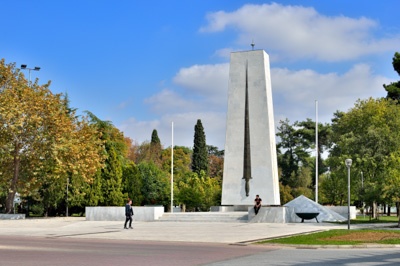 Komotini is currently located in the north central plains of the region to a draft of the valley at an altitude of 36 to 48 meters from the sea and ...
Komotini is currently located in the north central plains of the region to a draft of the valley at an altitude of 36 to 48 meters from the sea and ...
Kamariotissa
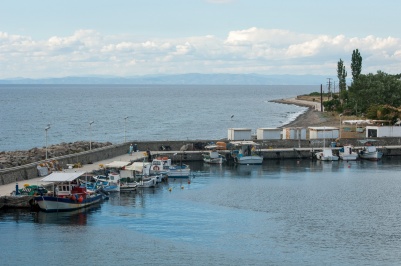 The port of Samothraki is in Kamariotisa. Here you can visit the lake of Saint Andrew, the Church of Kamariotisa where there is the image of Holy Mary of Kamariotisa. ...
The port of Samothraki is in Kamariotisa. Here you can visit the lake of Saint Andrew, the Church of Kamariotisa where there is the image of Holy Mary of Kamariotisa. ...






